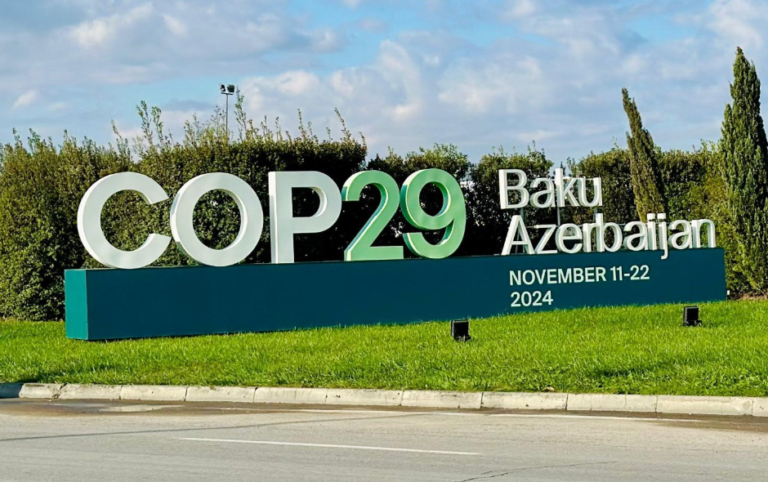Baku, Azerbaijan – At the recent COP29 held in Baku on November 12, 2024, the Multilateral Development Banks (MDBs) convened to announce a comprehensive strategy aimed at bolstering financial support for climate initiatives in low- and middle-income countries. Their collective goal is to ramp up annual climate financing to an impressive USD 120 billion by 2030, with USD 42 billion specifically earmarked for adaptation efforts. Additionally, the MDBs are set to mobilize USD 65 billion from the private sector to further amplify these endeavors.
In an exclusive interview, Wirsy Ernestine, Executive Director of Cameroon Gender and Environment Watch (CAMGEW), highlighted that for high-income countries, the MDBs anticipate an annual climate financing target of USD 50 billion, including USD 7 billion for adaptation. She noted that the MDBs have already surpassed their ambitious climate finance goals for 2025, achieving a remarkable 25% increase in direct climate financing, with climate mobilization efforts doubling in just the past year.
The MDBs emphasized that while financial commitments are crucial, their true strength lies in facilitating transformative change. In a recent statement, they remarked, “As outlined by the Group of Heads of MDBs in our Viewpoint Note, we are dedicated to enhancing the impact of our financing, engaging deeply with countries, and supporting their climate ambitions while increasing collaboration with the private sector.”
Recognizing the urgent need for climate action, the MDBs called for the establishment of a New Collective Quantified Goal on Climate Finance (NCQG) at COP29, stressing its importance in achieving the Paris Agreement’s objectives. They urged all parties to work together towards a robust conclusion on this critical initiative.
To ensure quality and systemic impact, the MDBs released the “Common Approach to Measuring Climate Results: Update on Indicators,” a pioneering framework designed to define, measure, and connect global progress on climate mitigation and adaptation with the outcomes of MDB activities.
Furthermore, the MDBs introduced their “Country Platforms for Climate Action,” a statement reflecting their commitment to enhancing collaboration between host countries, MDBs, donors, and the private sector. They pledged to support the establishment of new platforms based on country demand, building upon successful past initiatives and strengthening ties with key partners like the International Monetary Fund.
This significant statement was collectively issued by various MDBs, including the African Development Bank Group, the Asian Development Bank, the Asian Infrastructure Investment Bank, and the World Bank Group, among others, signaling a united front in the fight against climate change.

